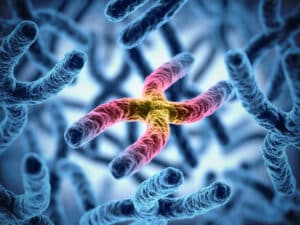A just-released study is offering encouragement to those diagnosed with small cell lung cancer and raising hopes among mesothelioma victims too. Scientists at UT Southwestern report finding that a specific molecule can damage DNA and halt the spread of the difficult-to-treat disease.

New Drug Features Molecule that Kills Small Cell Lung Cancer Tumor Cells
Small cell lung cancer is a very different cancer from malignant pleural mesothelioma, but the two diseases share certain characteristics. Both are extremely aggressive and develop significant treatment resistance that stymies oncologists. Researchers from UT Southwestern’s Harold C. Simmons Comprehensive Cancer Center in Dallas have announced that a new drug containing a specific molecule effectively damages the mechanism that drives this characteristic in small cell lung cancer.
While the drug has not been tested for efficacy against malignant mesothelioma, its treatment mechanism may prove helpful. The newly discovered drug attacks cancer-initiating cells in small cell lung cancer tumors, damaging the telomeres that form protective caps at the end of their DNA sequence. With these telomeres broken down, the cells quickly die.
New Lung Cancer Drug Has Advantage of Not Damaging Healthy Cells
One of the most challenging aspects of treating mesothelioma and lung cancer is the damage that cancer-killing drugs can do to healthy cells. That is one of the advantages of the drug that’s been introduced by UT Southwestern’s researchers. Dr. Esra A. Akbay, Ph., Assistant Professor of Pathology and a member of the facility’s Development and Cancer Research Program, explains, “It’s difficult to devise treatments that affect cancer cell DNA because most of the time they’re also toxic to bone marrow cells, which produce immune and blood cells. But 6-thio-dG is nontoxic to healthy cells in therapeutic doses.”
Of particular interest to mesothelioma researchers is the fact that the drug also has positive effects on the tumor immune system, increasing the recruitment of T cells and natural killer cells and decreasing the presence of cells that can promote tumor growth. The drug also sensitized the cancer cells to radiation treatment.
If you or someone you love has been diagnosed with lung cancer or mesothelioma, every step forward in finding a cure offers hope. For more information on resources available to you, contact the Patient Advocates at Mesothelioma.net at 1-800-692-8608.
